TALES OF MY FATHER
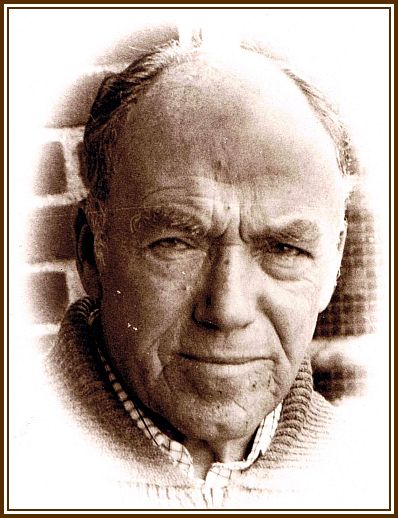 Charles Henry Jenkins (1908-1989), My Father ……. Jack-of-all-Trades, Master-of-None ……. an enigma
Charles Henry Jenkins (1908-1989), My Father ……. Jack-of-all-Trades, Master-of-None ……. an enigma
-oOo-
TALE SIX:
THE WAR YEARS: INTRODUCTION
-oOo-
THIS TALE IS DEDICATEDTO THOSE WHO SUFFERED THROUGH
AND TO THOSE WHO LOST THEIR LIVES
DURING THE SECOND WORLD WAR.
IT IS OUR DUTY TO ENSURE THAT SUCH EVENTS STOP HAPPENING.
-oOo-
The reality of The Holocaust is unbelievable and horrific! As I said earlier, what makes it difficult to understand is how one particular group of people could sanction the killing of a another group whose only crime seems to have been that they were different.
Unfortunately Killing has not proven to be unique to this event in the 20th Century, as a huge numbers of people have perished during this time:
- 58 million people were victims of Homicide;
- 30 million victims of Genocide; and in addition
- approximately 94 million were put to death in countries under Communist regimes (China, the U.S.S.R., North Korea, Afghanistan and Eastern Europe); and
- 28 million under Fascist regimes.
-oOo-
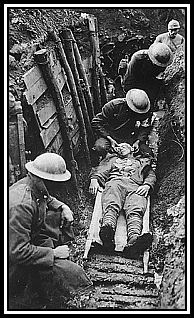
What is tragic is that people have not learned from the past. The First World War was supposed to be The War to End All Wars. The Great War, as it is called, inflicted great losses on both sides (37 million) with a Generation being lost. Obviously it was not The War to End All Wars for as soon as it came to an end, others were busy continuing to repress those that dared to disagree with their views. Like with the centuries before, the remainder of the 20th Century offers many examples to illustrate this point.
Click here to hear songs of The First World War
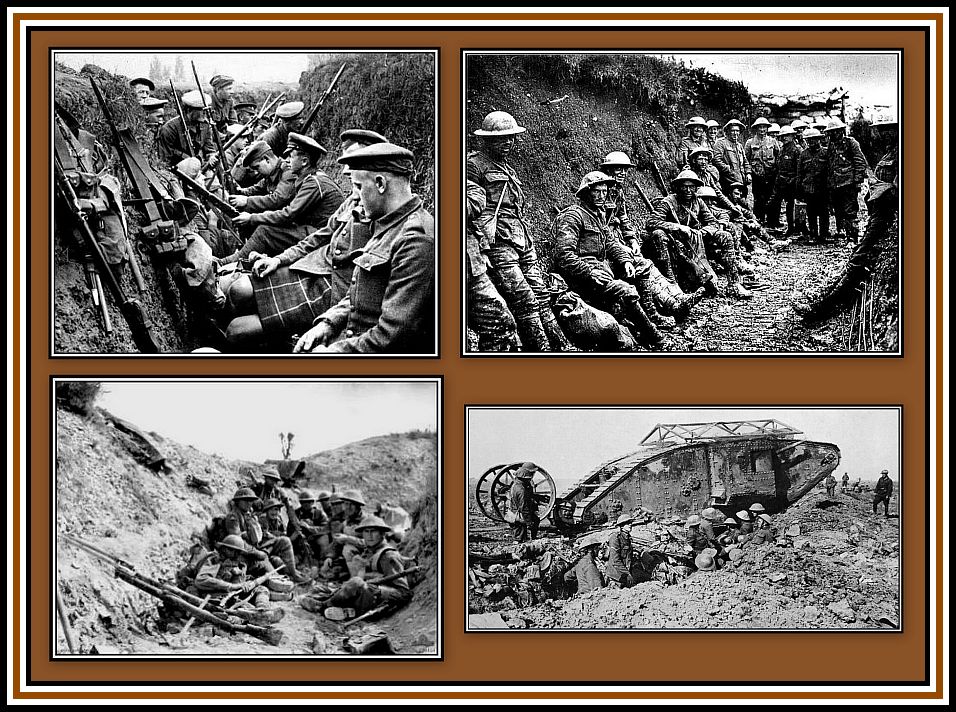 The Trenches
The Trenches
Click here to hear Oh it’s a lovely War sung by Courtland & Jefferies
Up to your waist in water,
Up to your eyes in slush,
Using the kind of language
That makes the sergeants blush;
Who wouldn’t join the army,
That’s what we all enquire,
Don’t we pity the poor civilians Sitting beside the fire?
-oOo-
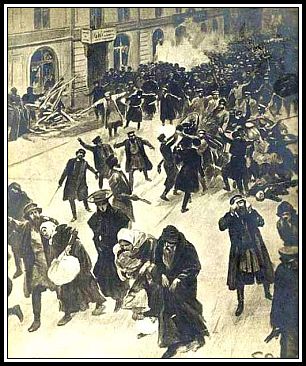 Postcard of The Pogrom of 1905
Postcard of The Pogrom of 1905
A Pogrom is a violent riot resulting in the death of those from a particular Ethnic or religious group. The term became known to the West to describe the attacks during the 19th Century against Jews in the Russian Empire although such attacks had been taking place in Europe since the Middle Ages.
The Khmelnytsky Pogroms (1648-1657) that occurred in The Ukraine are considered to be the first mass killings of Jews to be considered a Genocide. In 1821, the first of five Pogroms took place in Odessa (1821-1905) and was the result of ethnic Greeks seeking vengeance on Jews for the death of the Greek Patriarch of Constantinople, Gregory V (1746-1821). Jews and ethnic Greeks were business rivals in Odessa during this period and this together with their religious differences led to further acts of violence and murder against Jews who were not considered as equals in the society. The Program of October 1905 was a result of the Jewish backing of Japan in the Russo-Japanese War (1904-1905) where 400 Jews were killed. Dislike of Jews grew in the Russian Empire as the economy worsened and they found themselves blamed for the woes of the growing number of unemployed.
Repression and mayhem was rampant in the Union of Soviet Socialist Republics (U.S.S.R.; the Soviet Union) during the 20th Century. From 1918 onwards, Soviet leaders imprisoned many millions in Forced Labour Camps, which were overseen by the Gulag (English: Chief Directorate of Camps), an administrative agency that specialised in political repression.
ATTENTION: VIEWER DISCRETION ADVISED
Click here to see Drawings from the Gulag by Danzig Baldaev (1925)
Click here to hear Mr. Baldaev talk about his drawings
The Great Purge that took place in the U.S.S.R. between 1936 and 1938 under the leadership of Joseph Stalin (1878-1953) resulted in the death of between six-hundred thousand and three million people.
 Joseph Stalin (Upper Right) & The Great Purge
Joseph Stalin (Upper Right) & The Great Purge
This terror involved the large-scale removal of members of the Communist Party, Government Officials and the Red Army (The Worker’s and Peasants Red Army) leadership together with the repression of Peasants. During The Purge many came under police surveillance and execution appears to have been somewhat arbitrary.
-oOo-
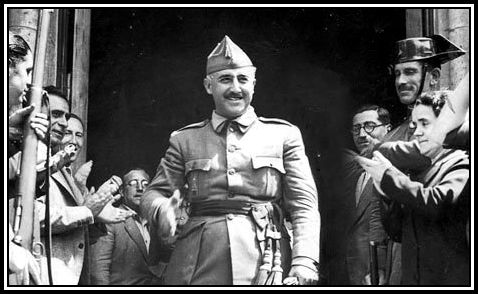 Generalissimo Francisco Franco (1892-1975); Fascist leader; later Dictator of Spain until his death
Generalissimo Francisco Franco (1892-1975); Fascist leader; later Dictator of Spain until his death
Between July 1936 and April 1939, Spain imploded as a result of those subscribing to different ideologies taking up arms against each other. The Spanish Civil War (1936-1939) became the backdrop for testing horrific new weapons and resulted in approximately half-a-million people losing their lives. While this Civil War raged plans were being drawn up elsewhere that would be used during The Second World War. These plans led to the domination, imprisonment and eventual murder of huge numbers of people whose only crime was that they were different from those in power.
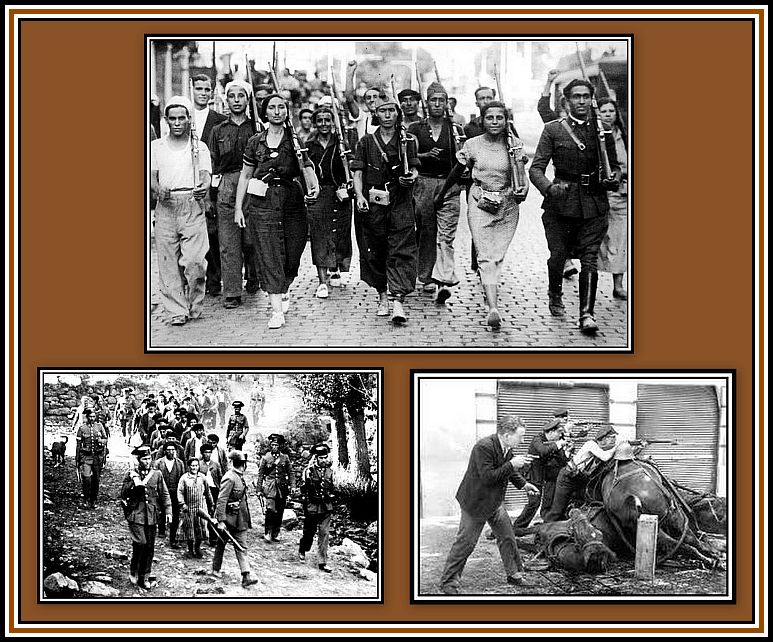
oOo-
After the horrors of The First World War, Pograms, The Great Purge & Gulags and The Spanish Civil War, and after seeing the footage of the poor souls murdered in the Concentration and Extermination Camps of the Second World War and the atrocities of the Rowandan (1994) and Cambodian (1975-1979) Genocides and many other such horrors, one would have hoped that similar heinous acts of mass violence where millions of people died, we would have had more than enough of such slaughter. But no, we only have to open a newspaper or turn on the radio or television to realise that we have not.
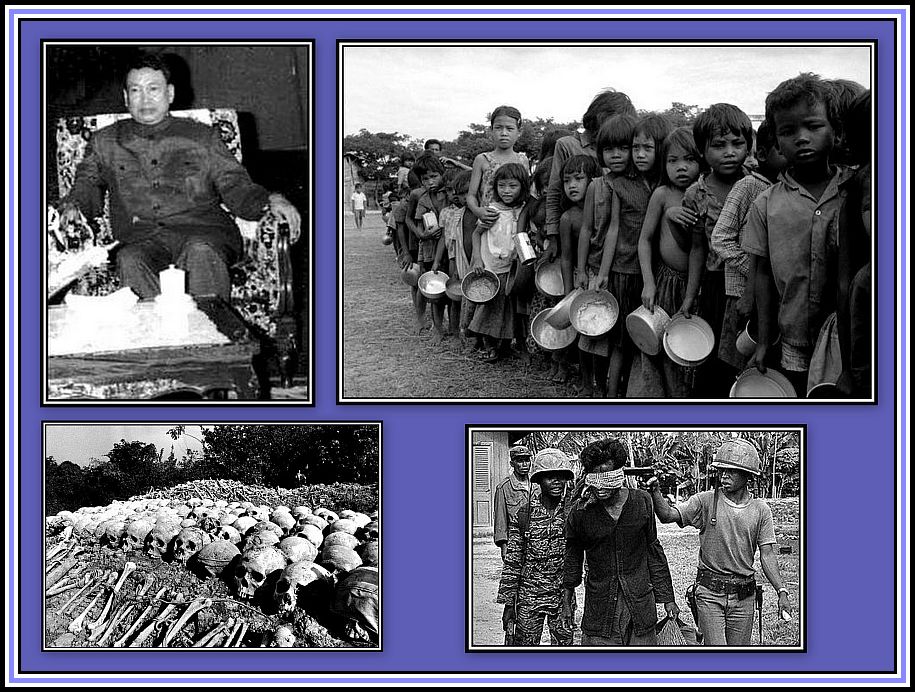 Pol Pot (1925-1998; Upper Left) & Results of the Khmer Rouge Regime in Cambodia
Pol Pot (1925-1998; Upper Left) & Results of the Khmer Rouge Regime in Cambodia
-oOo-
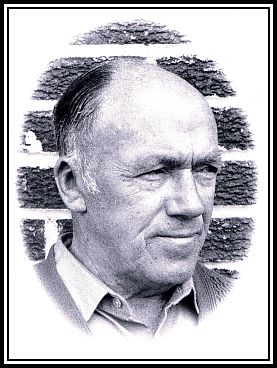
Regarding my father and his wartime experiences: he said very little to me about his time as a soldier. I think that the only person that he spoke to about what he had seen was to my mother. Although he told her something of what he saw and of his feelings at facing the horrors of the Concentration Camp at Bergen-Belsem, he apparently said only a little. Apparently he must have arrived there on the day that the Camp was initially entered on the 15th April, 1945. My mother said that he suffered with nightmares throughout his life.
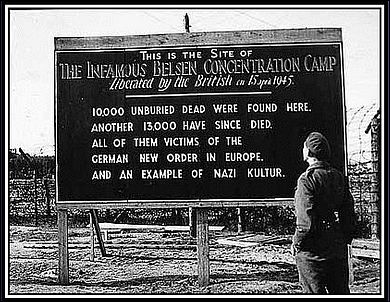
I was unaware that my father had been part of the liberation of the Concentration Camp at Bergen-Belsen. It was not until some years later that my mother told me of some of the things that he said. My father had died by then and my mother was in her late seventies and had moved to live with me. We often sat and talked about times and things passed and such times would naturally bring the conversation to that of my father. She said that he never forgot what he saw at the Camp. Although he said little, he say that those that had survived were like skeletons with yellow skin stretched over their bones. He said that the inmates wore what he called stripped pyjamas and, at first, had just stood and looked vacantly as they came into the Camp seeming not to register their arrival.
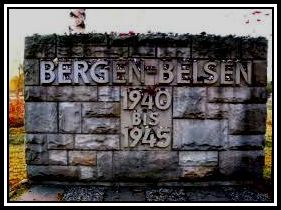
My father told that the people were starving and had been brutally treated. He said that when they opened several of the large furnaces they found charred human bones. He also saw large pits with dead babies lying at the bottom and noticed that their skin had been burned by, what he presumed, was acid. The people had been housed in large barrack-like buildings, which reeked of foul odours.
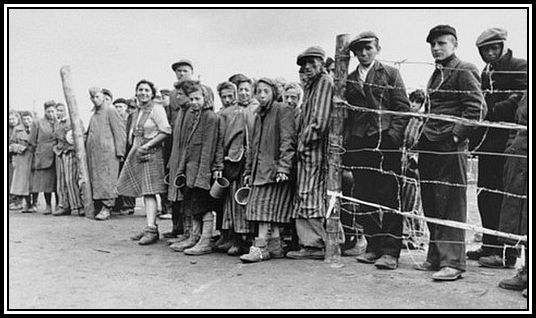 Surveyors
Surveyors
-oOo-
I can understand how these sights remained with my father for the rest of his life. Whenever pictures of The Holocaust appeared on television, he always either fell silent or left the room on the pretense of going to make a cup-of-tea.
-oOo-

That is all so dreadful. My husband and I visited Dachau a few years ago. It was good to see school groups being taken around and talks provided for them in one of the “dormitories” (that may not be the right word) because people need to face up to what happened there, but some of your details were new to me. No wonder your father didn’t like to talk about it.
I had a distant relation who would join us for Christmas at my aunt and uncle’s house, when I was a child. Just before this man and his wife arrived once, I remember my aunt suddenly rushing round removing any Christmas card with a Japanese picture (my uncle was quite an important banker, and in retirement he was an adviser to a Japanese bank, and often travelled there and had contacts there). This relative had been in a Japanese prisoner-of-war camp. My aunt told me he never talked of it, but if he spotted anything to do with Japan he would just get up and leave the room and disappear outside. We would have to go and look for him and use a great deal of tact to get him to return. We were not to mention Japan in his presence.
Well, my husband and I worked in Japan for 22 years, and our children were brought up there. We knew nothing but kindness there. Once, when we were visiting Hiroshima and couldn’t find change on the bus, an elderly man came forward and bowed and insisted on paying our fares. I had dreaded going there for fear of being glared at, but that is what we got instead. I made many friends in Japan, and am still in touch with them now.
I don’t know why there is this terrible potential for cruelty in human nature. I believe it is in all races, in some form. But there is also good. I fear we are all in a difficult period now and I hope there is enough good to stop such things happening ever again. But in view of recent events, that may be too optimistic. I worry for the grandchildren….
I hope your work will remind many others of the danger, so that they are on their guard against it.
Many thanks for this comment. Charles
Charles good afternoon
Its good to see you still plowing away at the occasional blogs. I did enjoy it from one point, as a history lesson, my only academic success during my time ( 4 years ) in Langley County Secondary Modern School.
My father never said much about his time in the army either. I have one side of an A4 sheet of paper about his time in there and what happened to him and it took a cousin to prise that out of him. One uncle died young in his early 50’s, his wife always blamed the 6 months he spent in the Royal Marines at Monte Casino. He would never go to Germany or Italy because of that, another uncle also now gone would have nothing from Japan in the house after his 3 years in Burma and the sights he saw.
Many years ago I took my daughter and a friend both about 12 – 14 to see Schindlers List at the cinema, the lack of movement from them ( and many others ) at the end of the showing was proof of the power of the film albeit a movie.
I have seen the Dimbleby item and it should still be shown in every school worldwide. ITV’s World at War, an excellent series, covered this in detail too and it was shown in schools back then in the mid 60’s I think.
So sad that as a race we have learned so little.
Kind regards
Ray
I did leave a comment but do not know if it went through.Charles,I know you put many hours into this project and we thank you for sharing your stories.Your father had to live with many terrible memories and there was not help,like the guys get today for Post Traumatic Syndrome and I am sure what he had seen was more terrible than any thing today.
The horror of Hitlers actions will live on for ever.I was born during the war,was little but still have some memories as a child in war torn Vienna,and the years after.Germans always remind me that Hitler,after all was born in Austria,so be it,but he went to Germany as soon as he was old enough to leave home and remember his favorite expression “Deutschland,Deutschland ueber alles!” he never mentioned Austria except to annex us to Germany and kill most of our men in the war.
Thanks again Charles for all your stories…
my mother will go to her grave hating the german,s and japanese,being born in 1950 i have not got those feelings but reading history of the second world war it is hard to understand how or why the germans acted in this way,when i read about what happened in these camps there is a combination of sadness and rage that people were made to suffer in such a way.
i sometimes feel we let the germans off too lightly,i,ve read that between 50 to 60 million people died in the second world war(i don,t know who worked all this out) 14 million died in the concentration camps ,7 million was yewish it was not only jewish people who perished,25 million russians died their villages destroyed and people murdered(the trouble with the russian figure we don,t know how many was down to stalin or propagander),the germans or nazi,s was a killing machine,they started by murdering those in germany who opposed them,then progressed to murdering members of their own party in the night of the long knives,as you wrote they practised on the spanish people and towns for the coming war i was reading that part of blitzkrieg was to bomb villagers to get the people on the road,then bomb and machine gun them to stop the enemy using the roads,they had no respect what so ever for anyone when the war was lost they reverted back to murdering their own people again.
it is estimated that 6-7 per hundred people was murdered by the nazi,s in europe the destruction of villages like oradour or lidise by the nazis show how evil they was,the sad truth is we look at the groups who was slaughtered and we lose site of the individual who suffered
we seem to forget what the japanesse did, they mostly murdered asian people so that don,t count and stalin was on our side so we could turn a blind eye to his crimes if he was not worse then hitler he was equal to him.
the nazi crimes was against everybody and i wonder how many escaped justice
i agree with everything you put down in your introduction and look forward to working my way through all the other chapters.